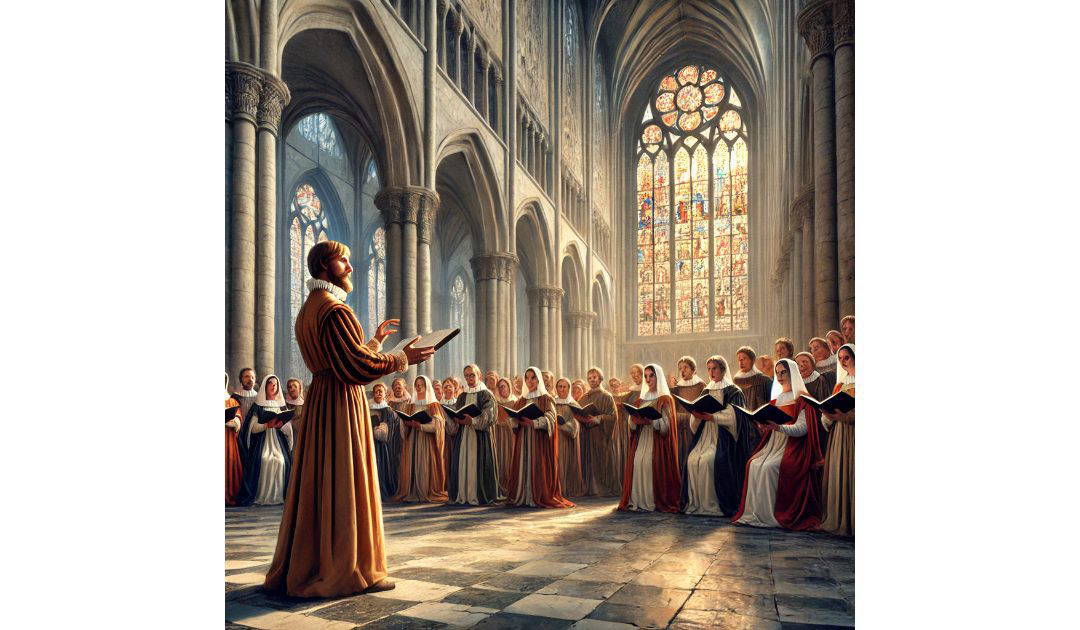I’m beginning to lose inspiration for blogs derived from today’s historical events. I think it’s just that I’ve already done most of them that interest me, or that relate to Sir Anthony Standen in some way. However I’ve done a few on Renaissance scientists, artists, and writers, so here’s one about a great Renaissance composer, who on 25th October 1577, was commissioned by Pope Gregory XIII to reform church music.
Giovanni Pierluigi da Palestrina (1525–1594) was a Renaissance composer whose work shaped the development of sacred music. Born in the town of Palestrina, near Rome, he became one of the most influential composers of his time, particularly known for his polyphonic masses and motets. His compositions marked a high point in the history of church music, especially within the Roman Catholic tradition.
Palestrina’s style is often referred to as the “Palestrina style” and is considered the epitome of Renaissance polyphony. This style emphasizes clarity, balance, and smooth melodic lines, ensuring that the text being sung could be clearly understood—a key concern for the Catholic Church following the Council of Trent (1545–1563). The council, part of the Counter-Reformation, sought to reform church practices, including the complexity of sacred music, which was often considered too intricate and hard to follow. Palestrina’s music met these demands by combining beauty with intelligibility, making him a model for future composers.
His most famous work is the Missa Papae Marcelli (Pope Marcellus Mass), a mass that supposedly convinced the Council of Trent that polyphonic music could be both spiritually uplifting and understandable. While this story may be more legend than fact, it highlights the high regard in which Palestrina’s music was held.
Palestrina wrote over 100 masses and 300 motets, along with other sacred and secular works. His compositions had a lasting influence on later generations, including Johann Sebastian Bach and 20th-century composers. Today, Palestrina is revered not only for his technical mastery but also for the serene, spiritual quality that characterizes much of his music, leaving a profound legacy in the history of Western classical music.
Whilst writing the fifth book of the Sir Anthony Standen Adventures, I’m meeting quite a few Renaissance physicians. Perhaps that will be the subject of my next post.

